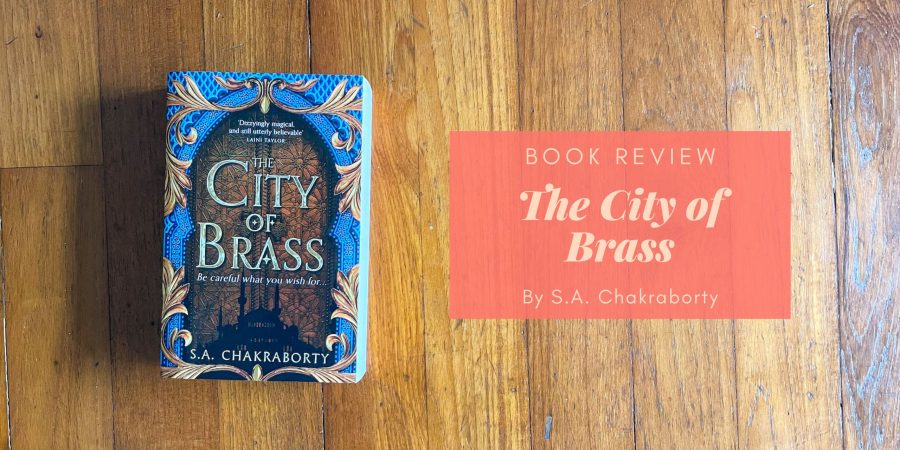I’m always on the look-out for fantasy based on non-Western cultures and mythologies, so I was really intrigued by City of Brass. Set in 18th century Cairo, City of Brass follows Nahri, a con-woman who accidentally summons Dara, a warrior djinn and realises that she may not be as human as she thought.
Well, I tried to summarise the book in one sentence but it’s actually so much more complex. Apart from Nahri, we also have Alizayd, the second son of the ruling family of Daevabad. So we have both the mysterious outsider and someone within the palace as our main characters. To make things more complex, no one faction is completely good or evil. Dara is said to be a scourge and evil, but the tribe to which he belongs sees him as a hero. Ali’s family works to keep the peace of the city, and though the devout Ali is different from his brother and sister, it’s clear that the family loves one another. And the shafit – the half djinn half human underclass – is very much oppressed but also more than willing to use Ali for their own ends.
I actually thought Ali was one of the most fascinating characters of the book. From his own POV chapters, he comes across as a very idealistic and likeable person. Ali wants to help the shafit and he wants to live life the way he thinks it should be, but he also loves his family and would never do them harm. The tension between these two desires have him walking a tightrope. But if you encounter Ali from another character’s POV, he comes across as a self-righteous and unfriendly prince, a great warrior but with no diplomatic skills.
Although I find Ali the most fascinating, I definitely like all the characters, even the ones that Ali doesn’t. Dara was one character that I initially thought too arrogant but who slowly grew upon me. He’s not a nice person, but honestly neither is Ali and I can see that Dara is following his ideals the best he knows how.
And of course, we have our main character, Nahri. Nahri, like everyone else, is not the most likeable person. There is one scene where Nahri’s selfishness (with regards to her tribe) is made clear; while I think a lot of people will find that scene a show of her independence, I find it telling of her refusal to connect with her heritage, which I felt was one reason why she had trouble mastering healing. I’m not too found of the Nahri and Dara romance, because it really came out of nowhere, but it’s thankfully not a big part of the book.
In terms of pacing, this book was definitely a lot slower than expected. It’s similar to how War and Peace isn’t really about action but about relationships; the unfolding of the various rivalries are the main focus of the book. The book starts just as the stakes are set, but since I enjoyed getting to know the world and the characters, I didn’t really feel cheated. In fact, I’m looking forward to the next book – I want to see what happens!

I want to get this for long time. Amazing review!
Thank you! Hope you get to read it soon!
I liked this but didn’t love it as much as everyone else seems to. I never read the third book.
FWIW, it seems like a polarising book on GoodReads!
I got this for my birthday and I’m so excited to read this one and see what I think!
I hope you like it too!! I saw it’s quite divisive but I love the worldbuilding (but someone also told me they disagreed with calling the book ‘slow’ so clearly pace is a subjective thing too!)